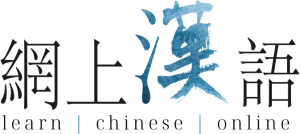Vocabulary and phonetics of lesson 4
Learn Chinese: phonetic and vocabulary 4
Note: when a translation of a character is in brackets, this means that this character cannot be used alone. This does not mean that it has no meaning, just as the roots of words in our Western languages.
guó :
(country). Can't be use alone. The word "country" is: guójiā. The g is pronounced as a 'k' in French or as a 'k' not aspirated in English.
zhōng :
(middle). Can't be use alone. The word "middle" is: zhōngjiān.
zhōngguó :
China, literally the "middle country". In fact, the (very) old meaning of zhōng is 'harmony'. zhōngguó thus means "land of harmony", a very important concept in traditional Chinese thought.
fǎ :
(the law). Can't be use alone. The word "law" is: fǎlǜ.
fǎguó :
France, we must not understand France as a "country of the law". The syllable fǎ comes from the old transcription of the word France, fǎlánxī, which is a phonetic transcription of the word France. The Chinese "translate" foreign names by their pronunciation. This is called a transcription or a "borrowing". For some country names, only the first syllable has been preserved and the country word root guó has been added.
měi :
to be pretty. It is an adjectival verb: Nǐ hěn měi. You are (very) pretty.
měiguó :
United States. The construction is the same as for the word "France".
yīng :
(flourishing, flower) is a root word whose meaning is virtually forgotten.
yīngguó :
England. The construction is the same as for the word "France" and "United States".
rì :
(sun). The r is somewhat similar to the sound [ʒ] in the middle of the words "measure" or “ treasure”. It is pronounced further down the throat (the tip of the tongue is further back). The i is a buzzed continuation of the consonant c, ch, s, sh, z, r .
běn :
(root, origin)
rìběn :
Japan, the country from which the sun comes (in the west, we call it the "Land of the Rising Sun").
rén :
human, people. -én is similar to the "urn" in "burning" or "fern" but with no sound of the "r".
zhōngguórén :
the Chinese
fǎguórén :
the French
měiguórén :
the Americans
yīngguórén :
the English
rìběnrén :
the Japanese
nǎ :
which?
nǎguórén :
what nationality?
wén :
(writing, language)
zhōngwén :
the Chinese language
fǎwén :
the French language
yīngwén :
the English language
rìwén :
the Japanese language
hàn :
(Chinese), this term refers to the Chinese HAN dynasty (-206 to 220) or the Chinese ethnic group hànrén (there are 56 ethnicities in China and the Han are the majority ethnic group).
yǔ :
(language)
hànyǔ :
the Chinese language. There is no big difference with zhōngwén except that hànyǔ refers a little more to spoken language and zhōngwén to writing. It is an error to say hànwén or zhōngyǔ .
hànzì :
Chinese characters (sinograms)
fǎyǔ :
the French language
yīngyǔ :
the English language
rìyǔ :
the Japanese language
shuō :
to speak
xiě :
to write
huì :
to know (how to) / to can. Example: Tā huì shuō hānyǔ. He can speak Chinese.
dōu :
all. It is an adverb and therefore has to be placed before the verb. Example: Tāmen dōu shì zhōngguórén. They are all Chinese.
ér :
(son) / suffix.
nǎr :
where? The suffix ér merges with the syllable preceding it. This is the only case of contraction of two syllables into one in Chinese.
zhù :
to live
zài :
to be located at. Example Nǐ zhù zài nǎr? Where do you live?
Běijīng :
Beijing (literally capital jīng of the north běi)
